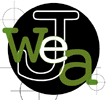We haven't had an update on House Bill 1307 -- also known as the Student Press Freedom Bill -- in a little while, so here's a quick update on where the bill stands.
First off, the bill -- which would keep administrators from censoring student media except in circumstances of illegal speech -- successfully made it out of the House Judiciary Committee on Jan. 31 (thanks to a 7-4 vote that was along party lines, with the Democrats on the committee voting in favor) and now is off to the
Rules Committee. This committee controls whether the bill eventually makes it to the House floor for a vote.
During that process, the bill was amended a bit. The essential elements remain unchanged. According to the
House Bill Report, this is how the substitute bill,
which you can find here, compares to the original bill:
The substitute bill added that the act does not authorize student expression that violates the Federal Communications Act or rules of the Federal Communications Commission. In addition, the substitute bill includes a provision that the act does not apply to educational programs in adult or juvenile correctional institutions or secure facilities for the confinement of sexually violent predators.
For now, the bill is in a bit of a holding pattern until the Rules Committee decides to take it up. We'll let you know when there is new information to report.
Outside of Olympia, the bill has engendered a lot of passionate opinions on both sides. The Seattle Times wrote perhaps the most critical editorial of the bill, titling it "
Young journalists, meet your editors." In the editorial, the Times argues:
"A bill in Olympia that would strip high-school and college educators of the ability to make editorial decisions in school newspapers goes too far to correct a problem that could be solved collaboratively. ...
"The daily life of a journalist and editor is one of give and take. The best journalists become so by a constant head-butting collaboration with editors. Student journalists would be well-served by learning to collaborate with superiors rather than bypassing them."
In response, a number of WJEA members -- including WJEA president Kathy Schrier -- wrote letters to the Times (
found here) to try and correct many of the incorrect assumptions about the bill and how it would affect journalism education in Washington. A sampling from those letters:
"The Washington Journalism Education Association (WJEA) and its national counterpart, the Journalism Education Association (JEA) provide training to student media advisers in journalism standards and media law. ... These devoted teachers are advisers. Yes, advisers. Not publishers. Not editors. And more important, not censors. We at WJEA urge critics to take a closer look at this bill and the clarity it provides for administrators, advisers and especially for students." -- Kathy Schrier, WJEA President
"You are journalists so you, of all people, should know that when we, students, care about our publications and are given the authority to make all content decisions, we will make the right ones." -- Matt Anderson, Tacoma
"Student newspapers serve a watchdog role within their schools, and administrators who insist on taking an intimate role in the publication process not only cause major credibility issues for these journalists, but they create an inevitable chilling effect on the free flow of information." -- Jeff Nusser, adviser, Emerald Ridge H.S. JagWire
"Since 1990, Colorado high-school journalism students have thoughtfully practiced responsible journalism under a law similar to the one currently being proposed in Washington. During that time — and contrary to The Times' assertion — I have taught essential journalistic intangibles such as editorial judgment." -- Mark Newton, adviser, The Orange & Black student newsmagazine; chair, Certification Commission, Journalism Education Association; journalim teacher, Grand Junction (Colorado) High School
Additionally, Student Press Law Center Executive Director Mark Goodman wrote his own response,
the full text of which you can find here, titled, "Why young people hate the media." In it, he says:
"Time and again, young people see a commercial news media that believes the First Amendment should only be big enough to cover its own behind and that press freedom really isn't that important unless it is somehow the direct beneficiary of its protection. ...
"If I am one of the more than 100 young people who packed a hearing room of the legislature last week to show their support for the bill (or the thousands of their peers who couldn't get out of school but were there in spirit), what do I make of this? Once again, the commercial news media has betrayed us."
Washington-based attorney Mike Hiestand also has
posted this FAQ page regarding HB 1307 on the Student Press Law Center Web site, designed to bring clarity to the questions surrounding the legislation.

